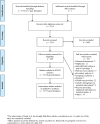Assessing the Effect of mHealth Interventions in Improving Maternal and Neonatal Care in Low- and Middle-Income Countries: A Systematic Review
- PMID: 27144393
- PMCID: PMC4856298
- DOI: 10.1371/journal.pone.0154664
Assessing the Effect of mHealth Interventions in Improving Maternal and Neonatal Care in Low- and Middle-Income Countries: A Systematic Review
Abstract
Introduction: Maternal and neonatal mortality remains high in many low- and middle-income countries (LMIC). Availability and use of mobile phones is increasing rapidly with 90% of persons in developing countries having a mobile-cellular subscription. Mobile health (mHealth) interventions have been proposed as effective solutions to improve maternal and neonatal health. This systematic review assessed the effect of mHealth interventions that support pregnant women during the antenatal, birth and postnatal period in LMIC.
Methods: The review was registered with Prospero (CRD42014010292). Six databases were searched from June 2014-April 2015, accompanied by grey literature search using pre-defined search terms linked to pregnant women in LMIC and mHealth. Quality of articles was assessed with an adapted Cochrane Risk of Bias Tool. Because of heterogeneity in outcomes, settings and study designs a narrative synthesis of quantitative results of intervention studies on maternal outcomes, neonatal outcomes, service utilization, and healthy pregnancy education was conducted. Qualitative and quantitative results were synthesized with a strengths, weaknesses, opportunities, and threats analysis.
Results: In total, 3777 articles were found, of which 27 studies were included: twelve intervention studies and fifteen descriptive studies. mHealth interventions targeted at pregnant women increased maternal and neonatal service utilization shown through increased antenatal care attendance, facility-service utilization, skilled attendance at birth, and vaccination rates. Few articles assessed the effect on maternal or neonatal health outcomes, with inconsistent results.
Conclusion: mHealth interventions may be effective solutions to improve maternal and neonatal service utilization. Further studies assessing mHealth's impact on maternal and neonatal outcomes are recommended. The emerging trend of strong experimental research designs with randomized controlled trials, combined with feasibility research, government involvement and integration of mHealth interventions into the healthcare system is encouraging and can pave the way to improved decision making on best practice implementation of mHealth interventions.
Conflict of interest statement
Figures
References
-
- Sanou B. The World in 2014: ICT Facts and Figures. 2014.
-
- Qiang et al., Yamamichi M, Hausman V, Miller R, Altman D. Mobile Applications for the Health Sector. World Bank Rep. Washington DC, USA; 2012.
Publication types
MeSH terms
Grants and funding
LinkOut - more resources
Full Text Sources
Other Literature Sources
Medical
Miscellaneous




